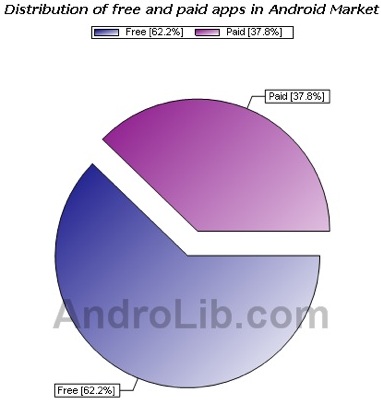I've always generally agreed with the conventional wisdom about micropayments as a method of funding online content or services: Namely, they won't work. Clay Shirky, Tim Lee, and many others have made the case that micropayments face numerous obstacles to widespread adoption. The primary issue seems to be the "mental transaction cost" problem: People don't want to be diverted--even for just a few seconds--from what they are doing to pay a fee, no matter how small. [That is why advertising continues to be the primary monetization engine of the Internet and digital services.]
 That being said, I keep finding examples of how micropayments do work in some contexts and it has kept me wondering if there's still a chance for micropayments to work in other contexts (like funding media content). For example, I mentioned here before how shocked I was when I went back and looked at my eBay transactions for the past couple of years and realized how many "small-dollar" purchases I had made via PayPal (mostly dumb stickers and other little trinkets). And the micropayment model also seems to be doing reasonably well in the online music world. In January 2009, Apple reported that the iTunes Music Store had sold over 6 billion tracks. That being said, I keep finding examples of how micropayments do work in some contexts and it has kept me wondering if there's still a chance for micropayments to work in other contexts (like funding media content). For example, I mentioned here before how shocked I was when I went back and looked at my eBay transactions for the past couple of years and realized how many "small-dollar" purchases I had made via PayPal (mostly dumb stickers and other little trinkets). And the micropayment model also seems to be doing reasonably well in the online music world. In January 2009, Apple reported that the iTunes Music Store had sold over 6 billion tracks.
And then there are mobile application stores. Just recently I picked up a Droid and I've been taking advantage of the rapidly growing Android marketplace, which recently hit the 20,000 apps mark. Like Apple's 100,000-strong App Store, there's a nice mix of paid and free apps, and even though I'm downloading mostly freebies, I've started buying more paid apps. Many of them are "upsells" from free apps I downloaded. In most cases, they are just 99 cents. A few examples of paid apps I've downloaded or considered buying: Stocks Pro, Mortgage Calc Pro, Currency Guide, Photo Vault, Weather Bug Elite, and Find My Phone. And there are all sorts of games, clocks, calendars, ringtones, heath apps, sports stuff, utilities, and more that are 99 cents or $1.99. Some are more expensive, of course.
 I don't have any idea how big this marketplace is in the aggregate, but according to AndroLib, "fully 62.2% of the apps available are completely free, compared to just 37.8% that are paid apps. That's in stark contrast to the [Apple] App Store, which now has over 100,000 individual apps, of which (by some recent counts) a hefty 77% are paid applications -- although only 30% of total App Store downloads are for paid apps." That suggests that micropayments are doing quite well in mobile marketplaces. And this Wall Street Journal piece I was reading just yesterday, "Mobile-Payment Services Grow," suggests there are lots of innovative things are happening in this space right now. I don't have any idea how big this marketplace is in the aggregate, but according to AndroLib, "fully 62.2% of the apps available are completely free, compared to just 37.8% that are paid apps. That's in stark contrast to the [Apple] App Store, which now has over 100,000 individual apps, of which (by some recent counts) a hefty 77% are paid applications -- although only 30% of total App Store downloads are for paid apps." That suggests that micropayments are doing quite well in mobile marketplaces. And this Wall Street Journal piece I was reading just yesterday, "Mobile-Payment Services Grow," suggests there are lots of innovative things are happening in this space right now.
Of course, this gets into the semantic issue of, "what is a micropayment"? Does 99 cents qualify? I don't know. I've never found any widely accepted definition of the term. Moreover, even if it's true that a lot of people are buying "small-dollar" apps in mobile marketplaces, that doesn't mean micropayments can fund all media going forward. It's unlikely, for example, that we can fund quality journalism one micropayment at a time. People are just not going to pay a quarter (or even a penny) every time they want to read an article. They might, however, be willing to pay a small monthly or annual access fee for some sites or services. But with the exception of The Wall Street Journal and a handful of other media services, that model just doesn't seem to have legs right now. [Although take a look at Dale Jefferson's amazing newspapers app in the Android marketplace. Very cool. Perhaps media providers will learn from aggregation efforts like that and find a way to charge a small fee for access. But at less that one British pound -- the cost of Jefferson's app -- I can't imagine that funding a lot of content. They'll need plenty of ads and other revenue streams to make up for what they are losing.]
Anyway, I'm not saying I have any answers here, just that my mind is still open regarding the possibility of micropayments as a method of funding online services and content. It may end up being easier for the former rather than the latter, however. posted by Adam Thierer @ 1:56 PM |
Economics
, Innovation
, Mass Media
Link to this Entry | Printer-Friendly | Email a Comment | Post a Comment(8)
|
